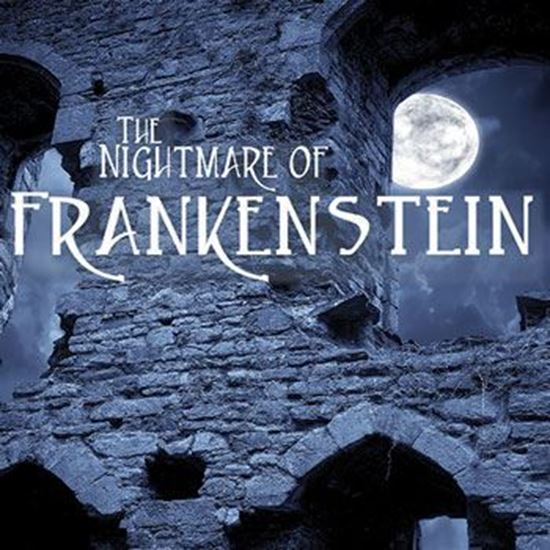
The Nightmare of Frankenstein
The House of Frankenstein is in turmoil. Victor Frankenstein, engaged to a woman he deeply loves, has fallen into a fit of despair. The cause of Victor’s behavior is, in fact, a Creature he brought to life. Contrary to what Victor intended, however, his Creature is hideous to look upon. So much so, that the Creature has covered his face so he won’t have to see his own reflection. Desperate, the forlorn Creature strikes a bargain with Victor: If the young scientist will create a suitable bride for him, the Creature will retire with her to the cold and distant Arctic, never to be seen again. When Agatha, a blind housemaid, senses the “faintest pulse of life” and tries to touch the bride’s body still being created, the Creature pushes the maid away, accidentally killing her. A furious Victor shouts, “The life of your bride for Agatha’s!” and destroys the Creature’s unfinished mate. The Creature vows a terrible revenge and Victor must set out to destroy the very life he created. In this highly literate and theatrical version, the playwrights remain faithful to the original story but the violence is accomplished offstage.The play can be staged simply or with more complex production values. About 45 minutes.
Productions
Behind The Scenes
Playwrights Edward J. Walsh and Robert Thomas Noll
Talk About “The Nightmare of Frankenstein”
Q: WHAT INSPIRED YOU TO WRITE THIS ADAPTATION?
A: We find this is a timely story, with science today having the ability to create life, possibly even human life. That potential opens up a host of questions about the ethics of what can be done, what should be done, and what the consequences could be.
Q: WHAT'S YOUR FAVORITE PART OR LINE IN THE PLAY? WHY?
A: Victor Frankenstein’s line: “How could I have been so filled with pride to think I could play God?” It summarizes his realization that noble as his ambitions were, they also held the possibility of tragic consequences.
Q: WHAT WAS THE MOST DIFFICULT PART IN CREATING THIS ADAPTATION?
A: Taking a classic novel written in 1816 and condensing it while staying faithful to the intentions of its original author Mary Shelley.
Q: WHAT DID YOU TRY TO ACHIEVE THROUGH THIS ADAPTATION?
A: We wanted to bring this classic story to the stage in a theatrical and entertaining way for today’s audiences.
Q: DO YOU HAVE ANYTHING ELSE YOU'D LIKE TO ADD?
A: We have written the play with challenging roles for actors and a highly imaginative script for directors to stage. The play can be staged simply or with more complex production values.
